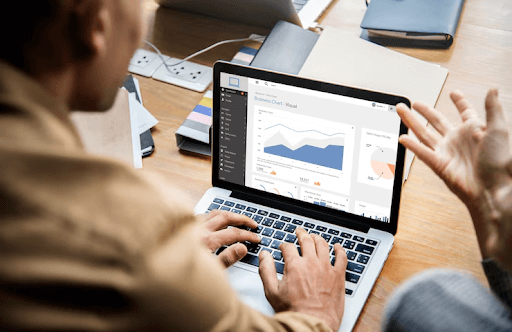Organising invoices can seem like a real pain, but once you have a process in place, you will be able to save yourself a lot of time and stress. Whether you do your own accounting or outsource it to someone else, being able to keep track of your Invoices will help you to stay on top of your income and outgoings. Effective invoice management also allows you to know how well your business is doing at any given time and makes it much easier when it comes to the preparation of annual reports and tax returns.
The purpose of an invoice
An invoice is issued to a customer to request payment for goods or services. It will contain details of the transaction, such as the companies involved, the date the product or service was delivered, quantities, prices, financial details, such as VAT numbers, the date of issue, and a reference number.
Keeping a record of the invoices that you issue and receive allows you to keep on top of the collection of payments and the settling of your debts. Maintaining a log also provides proof of every transaction in case a complaint or query arises over the receipt of goods, services, or payment.
How to create an invoice
When creating invoices to issue to customers, you should create a standard template so that no matter who in your organisation raises an invoice, the information will be uniform to prevent misunderstandings and errors. Make sure your invoices contain as much detail as possible for your accounts department. Paper invoices are still used, but it is more professional and saves a lot of filing space if you can use digital invoices.
Processing invoices
Whichever method you choose to use to organise your invoices, stick to it so that documents don’t get lost during transfer. Be methodical so that anyone who needs to take over can easily follow your process. Chronological filing is a good way to organise invoices as it can help you to track monthly as well as annual income. It’s also best to process your invoices on a regular basis rather than trying to process them all at once before fulfilling a tax deadline.
Keep track of all your payable invoices so that you know when outgoing payments to suppliers are due, and you can easily remind customers when they are due to pay you. Match your invoices to your receipts and remittances as you go so that you know which invoices have been settled, and remember to transfer all the information relating to invoices to your accounting ledger as you go. Create a processing pathway so that people know how invoices are saved and where. Implementing an invoice reconciliation process can further streamline your workflow by ensuring that all transactions are accurately matched and any discrepancies are promptly addressed.
Using remittance advice
Similar to a receipt, remittance advice is confirmation that a supplier sends to a business to show that an invoice has been paid. These are particularly helpful if you are processing a lot of incoming payments, as payments of the same amounts from the same supplier can cause confusion. A remittance will usually contain the same information as the invoice that was issued, making it much easier for the accounts department to match one to the other.
Invoicing software
Companies with a limited budget can use software, such as Google Docs or Sheets, to type up invoices; however, invoicing software can make the raising and tracking of invoices even more of a breeze. Everything is stored in one place, and a lot of the organisation is done for you. In case a customer requests a copy of their invoice, there is no need for a scanner as everything is stored on the database and can be duplicated at the touch of a button. When it comes to accounting, it’s also usually easy to call up an automated report.
Consider using cloud storage for your invoices so you can share them easily with your customers, your team, and your accounting department. As well as saving precious storage space, this is a safe way to be sure that nothing can happen to your files as the invoices are stored on a secure server.
Outsource your invoicing
Go one step further and outsource your invoicing to a company that already has credit control software. This option allows you to focus on your business rather than using your resources to chase after invoices. They can also provide you with advanced reports that provide valuable insight into your customers and cash flow so that you can make decisions that are backed up by data.
They have their own team of collection agents who know how to approach customers in the best way to keep them happy while keeping the cash flowing in and reducing overdue accounts. If you have international clients, then make sure you choose an agency with multi-lingual agents so that as well as being able to communicate with your clients, they will also be aware of local collection procedures and laws. Furthermore, if there is a dispute, a collection solution will be able to guide you through resolution and proceed to litigation if necessary.
The takeaway
When starting out with a small business, limited cash and the demands of the business will often mean that you can get by with paper invoices and a simple spreadsheet. However, as your business grows, it will be time to consider appointing someone to run a more thorough invoicing process to accommodate advanced accounting. No matter if you are just starting out, or have been processing invoices for some time, consider how you are doing it and whether outsourcing would be cheaper, enabling you to focus your resources on your core business.







